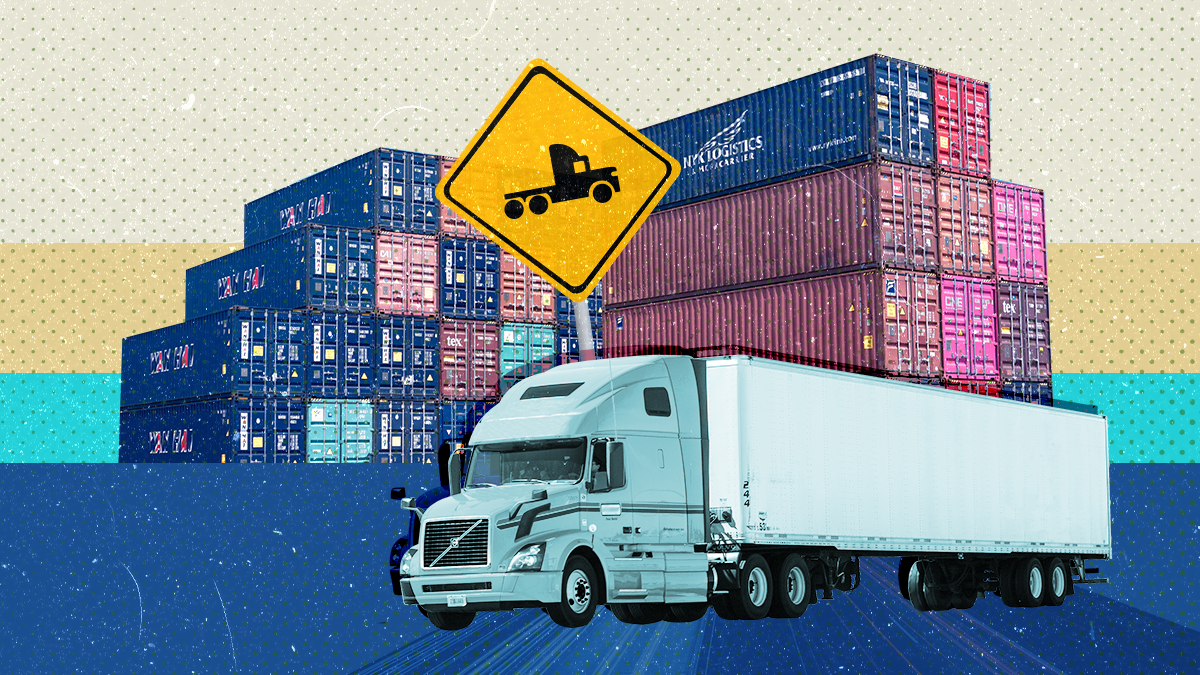What We're Watching: Truckers wanted & not-so-cheap chips
Where are all the truck drivers?
The global truck driver shortage has been disrupting already-out-of-whack supply chains, particularly in the US, the European Union, and Britain – further complicating their post-pandemic economic recoveries. Last year, the American Truckers Association said it was around 80,000 drivers short, while in Europe, a deficit of 40,000 truckers has contributed to long waits and empty shelves.
What’s going on? The pandemic has upended the way we work. Trucking is an arduous and ungratifying gig: Drivers often spend days or weeks far away from home, and they don’t get paid for hours spent waiting for goods to be loaded and unloaded. The road can be grueling, the compensation is underwhelming, and the benefits are often … nonexistent. In the US, trucking salaries have plunged in recent decades. Median wages for truck drivers in 1980 were about $110,000 annually (adjusted for inflation); in 2020, they were just $47,130. Unsurprisingly, many truckers are opting for jobs with better conditions and pay, so trucking firms in Europe and the US are struggling to lure drivers back to work and recruit new staff. It’s particularly grim in the UK, where supply side frictions have been exacerbated by Brexit. In the US, meanwhile, companies like Walmart are fighting back by offering massive salary hikes to attract truck drivers. Will it get the wheels turning?
Chipping away at supply chains
The US Congress this week passed the behemoth CHIPS and Science Act, which ponies up $52 billion in subsidies and incentives to boost domestic production of semiconductors, the invisibly thin microchips that are essential for everything from phones, cars, and factories, to fighter jets, cruise missiles, and artificial intelligence. With the bill, Congress is making a big move in a new global “Chips race” for dominance of the industry: the EU is now spending close to $50 billion on the same thing, and China, which still depends on the US and its allies for inputs into its home-grown chips, has poured hundreds of billions into some day becoming a semiconductor superpower itself. For all three of the world’s largest economies the concern is the same: the semiconductor market is highly concentrated, particularly in Taiwan, which produces more than 60% of the world’s chips. That’s a problem commercially – in 2021, there was a global shortage after tech firms gobbled up the entire supply, leaving automakers scrambling for chips. But it’s also a problem geopolitically. China doesn’t want to be dependent on chips from a Taiwan that’s allied with the US, while the US and EU don’t want to rely on a Taiwan that could be taken over by China any year now. Critics of the US CHIPs act say its a sop to powerful tech companies that can well afford to build their own factories, and there are questions about whether the money will be spent on the right things: making the chips is one thing, cutting edge R&D is a whole other bowl of chips, and the supply chain for a single chip can pass through many countries before final assembly. As a cautionary tale: the EU aimed in 2013 to double its share of global semiconductor production to 20% by 2020. It didn’t work.
